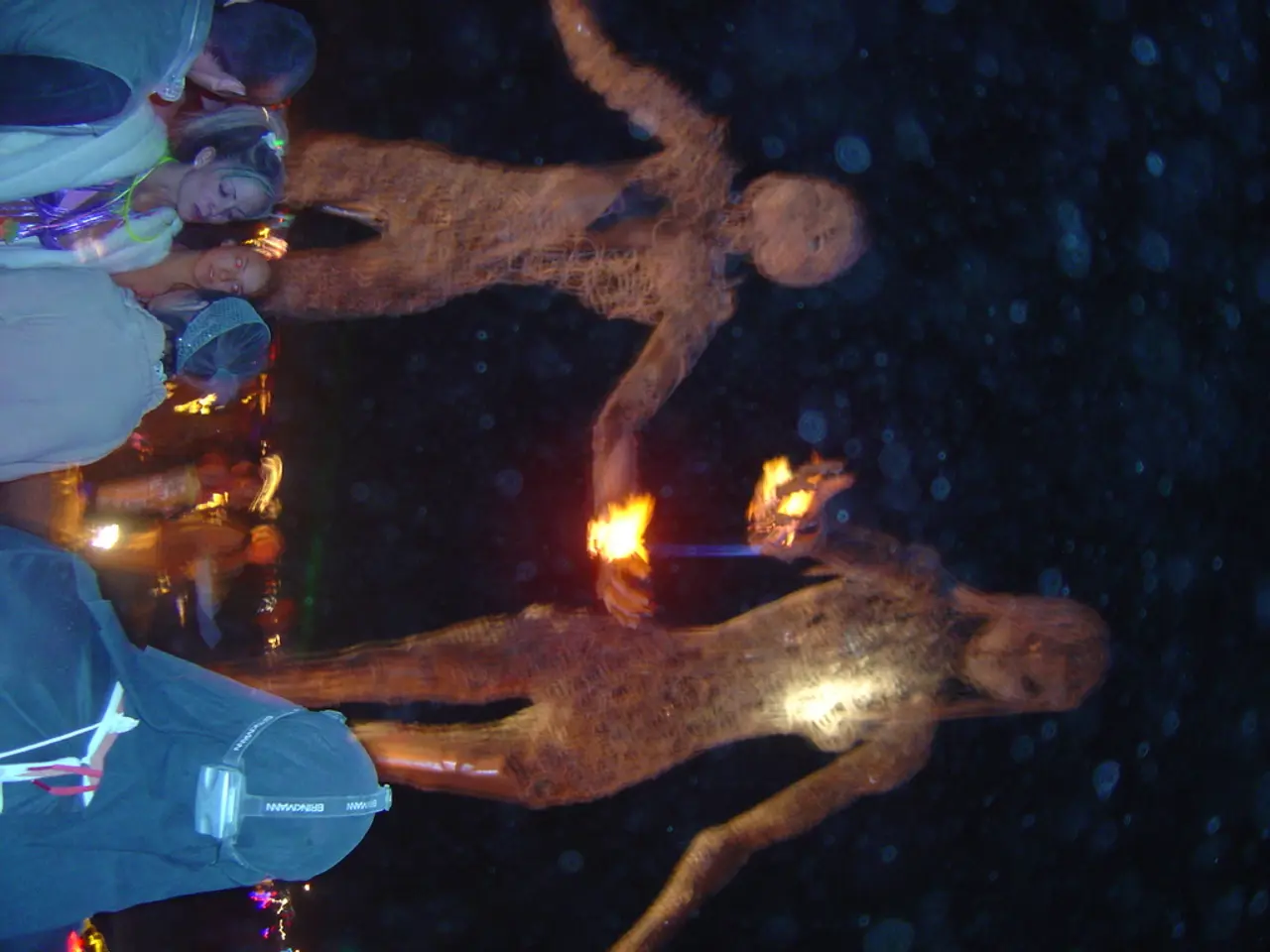Emergency Room Physician Discloses Common Injuries Encountered During Fourth of July Celebrations
As the 4th of July holiday approaches, it's essential to be aware of the common injuries that occur during this time. By understanding the risks and taking preventative measures, you can ensure a safer and more enjoyable celebration.
Firework-related injuries are a leading cause of emergency room visits during the 4th of July. Burns, eye injuries, and hand trauma are common due to mishandling fireworks. To minimise these risks, experts recommend attending licensed public fireworks displays instead of using fireworks at home. If you must handle fireworks, never allow children to do so, maintain a safe distance, and keep water and a fire extinguisher nearby.
Burns from grills and fires are also a concern during this period. Burns range from first-degree (sunburn-like) to severe third-degree burns caused by direct contact with flames or explosions. Preventing grill burns involves maintaining and cleaning grills regularly, keeping them away from buildings and flammable materials, and treating burns promptly with cool water and sterile dressings.
Traffic accidents increase due to holiday travel and impaired driving. To ensure road safety, avoid driving during peak times, never drink and drive, and designate a sober driver. Drive defensively and watch for pedestrians in crowded areas.
Incidents in water-related activities rise during the 4th of July, making drownings a significant concern. Life vests (PFDs) are a must for everyone on the water, even the best swimmers. Wearing a sturdy pair of water shoes can also protect against injuries and make slips and falls less likely.
Heat-related illnesses, such as heat stroke and dehydration, are concerns as people spend more time outdoors in the summer heat. To prevent these conditions, limit outdoor activity during peak heat hours, hydrate regularly, and use sunscreen. Check on vulnerable individuals, such as the elderly and children, to ensure they are staying cool and hydrated.
Slip and fall injuries are also common during crowded events. To prevent falls and fractures, wear appropriate footwear, watch for hazards like wet floors or uneven ground, and report them. Know the locations of first aid stations.
By following these safety measures, many of the common injuries seen during the 4th of July holiday can be significantly reduced or avoided altogether. Staying well-hydrated, avoiding the sun between noon and 2 p.m., applying sunscreen, and wearing a large-brimmed hat can further protect you from heat-related illnesses and sunburn.
Remember, moderation is key when it comes to alcohol consumption. Alcohol-related incidents, such as falls, cuts, vehicle accidents, and alcohol poisoning, are common during the 4th of July. For those who consume alcohol, it's important to stay away from dangers like fireworks and to plan in advance for sober rides.
Experts agree that fireworks are best left to the professionals. Drownings and near-drownings are particularly common among children aged 1 to 4. Dr. Ryan Marino stated that Independence Day has the year's highest number of daily medical emergencies.
By being aware of the risks and taking preventative measures, you can make the 4th of July a safe and enjoyable holiday for everyone.
- The health risks associated with fireworks extend beyond just burns and eye injuries; accidents related to fireworks are a leading cause of emergency room visits during the 4th of July.
- In addition to firework-related accidents, general news outlets often report an increase in traffic accidents during the 4th of July due to holiday travel and impaired driving.
- Heat-related illnesses, such as heat stroke and dehydration, are a significant concern during the 4th of July, particularly during peak heat hours when people spend more time outdoors in the summer heat.




